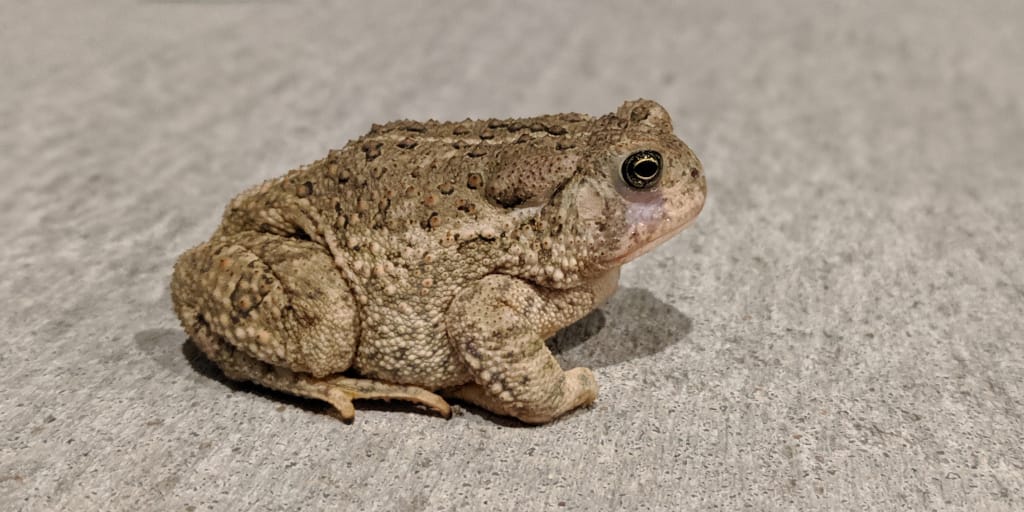Wanda wakes in the still blue dawn light, thinking about Ted, her husband, who’s off fighting Hitler’s men in North Africa. She wanders out into the kitchen to find Henry standing over something small and moving in the kitchen. Her first thought is that it’s a rat, her second thought is that she shouldn’t scream and terrify the rat into biting her boy, and her third thought is the most useful, which is to turn on the light.
When the light comes on, she finds that the thing at his feet isn’t a rat but a toad, and Henry is in his pajamas staring down at it quizzically. Wanda points at it and says, ‘Toad.’
Henry turns his face to her.
‘Can you say toad?’
He only narrows his eyes as though he understands, but doesn’t know why she’s asking him to perform that particular task.
She’s doing it because the boy is 17 months old and hasn’t said his first word yet. She’s doing it because the doctor said she dotes on him too much so he doesn’t need to speak. ‘Please say ‘Toad,’ Henry,’ she says. The child has figured out how to climb out of the crib on his own every morning, but he still can’t speak.
Henry drops to his haunches and reaches for the toad, and Wanda just watches him do it. It occurs to her only later that someone told her toads are toxic. Right now, she just watches him because maybe if he’s interested in something he’ll speak. The toad leaps forward out of his grasp, and he laughs that musical laughter of his. He steps clumsily forward trying to get it, and it hops again, landing between Wanda’s bare feet.
She snatches the little creature, and Henry reaches for it, but she lifts it too high for him to grab. ‘You say the word toad,’ she says, ‘and I’ll give it to you.’
Henry keeps his face hopeful, keeps reaching for the animal.
‘Not until you speak.’ She has a nightmare of her husband coming home after having spent all this time fighting the Nazis only to find that his child still can’t say a word. The idea eats at her in the evenings. She sees him saying hello to the boy he still hasn’t met and Henry just staring back with wide uncomprehending eyes. There is nothing soft about Ted, nothing kind, and she can’t imagine the war is going to turn him into a gentle person.
So she says, ‘Toad’ and Henry’s face fills with questions that he has no language to ask. ‘Toad.’ Something about the blankness of his face opens the darkness inside her, and she screams, ‘Fucking ‘toad!’’
It’s the first time she’s used the word that Ted used all the time. When she sees Henry’s face fill with confusion and fear, she drops down into a sitting position, and starts to weep, crying for the first time since Ted left.
Henry crawls into her lap, speaking the language he knows, that of touch and sense. He knows the language of embracing and holding her hand. He nuzzles into her and does not bother with the animal still in her hand, and so she hugs him back. She thinks about Ted’s hardness and Henry’s softness.
The boy will speak eventually, she tells herself. The doctor told her he would. She wonders in the future when Ted is back home, and Henry is chattering away if she will miss the silent language he has now. She wonders if she’ll miss the long days of silent calm before Ted reentered her life.
John Brantingham was Sequoia and Kings Canyon National Parks’ first poet laureate. His work has been featured in hundreds of magazines, Writers Almanac and The Best Small Fictions 2016. He has nineteen books of poetry and fiction including Life: Orange to Pear (Bamboo Dart Press). He is the founder and editor of The Journal of Radical Wonder. He lives in Jamestown, NY. You can find John on Twitter as @JohnBrantingham or at his website: johnbrantingham.com.
Photo by Chris McQueen on Unsplash.

